I’m Ross Kernez—your go-to architect for Crisis Communications and Reputation Management. For more than fifteen years I’ve kept A-list profiles immaculate, replacing frantic crisis clean-ups with a proactive, always-on system that safeguards, elevates, and continually refines your public image. Ready to stay flawless around the clock? Let’s talk.
How to Un-Google Yourself and Take Back Your Privacy
Erase your digital footprints and reclaim your privacy with Ross Kernez, a trusted Crisis Communications & Reputation Management specialist. For more than fifteen years, I’ve helped executives, public figures, and forward-thinking brands vanish unwanted search results—quietly burying sensitive or damaging links while elevating content that safeguards your identity. When every Google query can expose more than you’d like, let’s make sure what surfaces protects your personal space and projects the narrative you choose.
How to Un-Google Yourself and Take Back Your Privacy

as seen on
Do You Need to Remove The Following Pages
Speak With an Expert
How Do you need an online reputation management service?
| Option | Effectiveness | Cost |
| #1.Waiting For Negative Articles To Naturally Fall Off The First Page | Low | Free |
| #2.Submit a DMCA (Digital Millennium Copyright Act) Takedown Notice on Google | Low | Free |
| #3. Hire an SEO Expert ⭐️Ross Kernez ⭐️ to Clean Your Name or Brand | High | $$ |
| #4. Reaching Out To Journalists to Remove Content from Google Search | Low | Free |
| #5. Explore Legal Strategies to Remove Negative Content Online | Medium | $$$ |
| #6. Requesting an Update To a Negative Article Via Email Outreach | Low | Free |
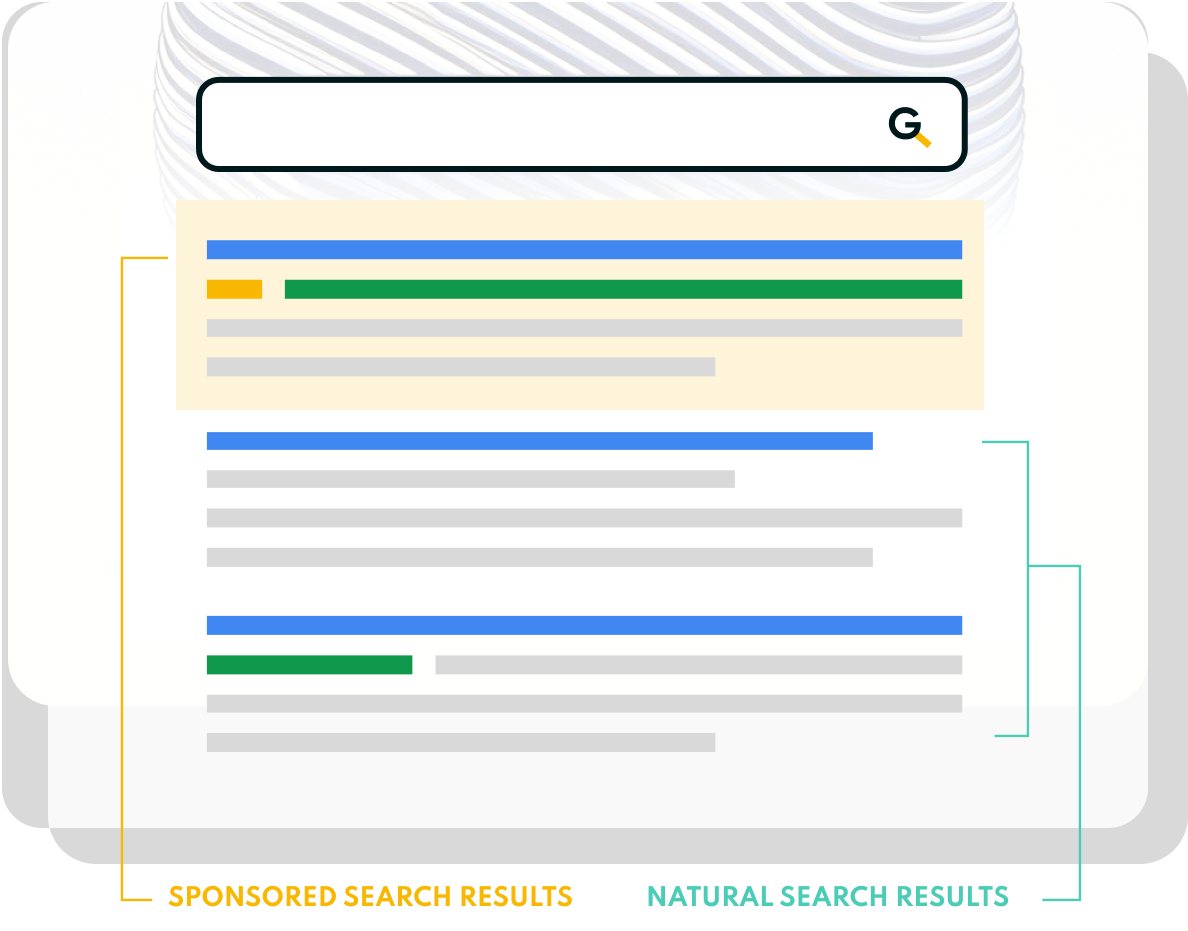
What are Search Results?
Search results refer to the list created by search engines in response to a query. Search results can be broken down as follows:
Natural search results
(usually on the left-hand side of search engine’s results page) and;
Sponsored search results
(usually on the top and right-hand side of a search engine’s results page). Here you will see websites that have placed PAID ads within the search engine.


Who is Ross Kernez?

Why you should remove negative content online
Here’s some feedback from someone who has worked with Ross
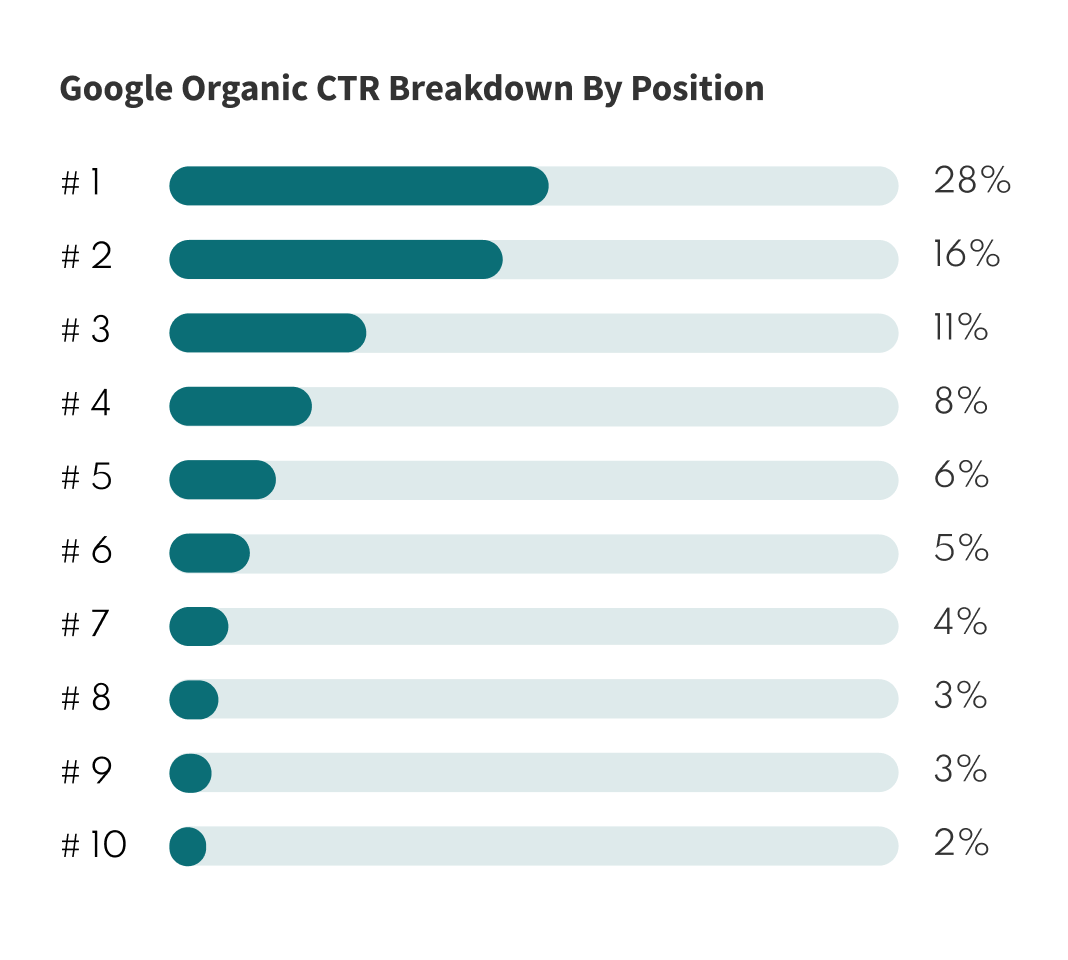
How to suppress negative information about you or your business
When your privacy is on the line, partnering with a “How to Un-Google Yourself” specialist turns an online liability into a clean slate. I start with a forensic sweep of your entire digital footprint—identifying every unwanted mention, gauging its visibility, and tracing its origin. Armed with this intelligence, I build a custom removal-and-suppression roadmap that wipes out harmful links while promoting authentic, authority-boosting content designed to rank. Throughout the process, I track sentiment in real time, adjust tactics on the fly, and spotlight the milestones that truly define you—so each Google search presents the private, polished story you choose to share.
Let's Dive Deeper on How online reputation management works
Your personal site, bio pages, and social profiles get a technical tune-up, regular updates, and smart cross-linking, boosting their relevance and authority so they rank ahead of stray noise. If a media hit gets the facts wrong, we secure a discreet correction; if content slips into defamation or privacy abuse, we file formal takedown or de-index requests backed by solid legal footing.

Google prioritizes what’s new and credible, meaning a single negative headline can surge to the top and stick. Every update or syndication resets the clock, dragging that story back to page 1. The antidote? Meet Google’s relevance signals with a continuous flow of timely, high-authority coverage. Our “Un-Google Yourself” program delivers exclusive features, spotlights your community impact, and issues verified announcements on trusted platforms. By consistently injecting fresh, newsworthy proof of who you really are, we dilute isolated negatives, steer the narrative, and reclaim the prime search real estate where first impressions—and opportunities—are won.
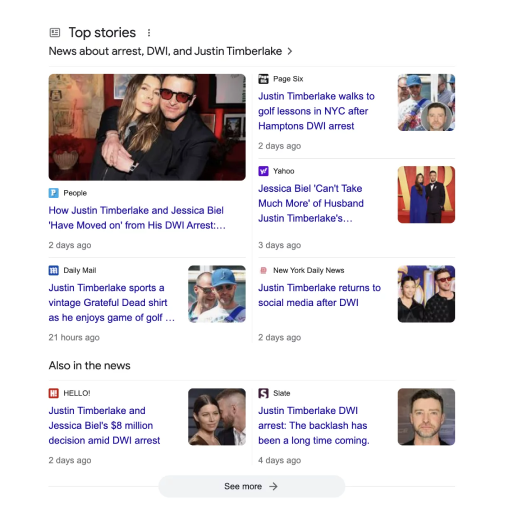
Why Google Ranks News Very High in Search?
#1. Waiting For Negative Articles To Naturally Fall Off The First Page
In today’s hyper-connected marketplace, hoping Google’s freshness algorithm will eventually bury hostile headlines is a risk no brand—or prominent individual—can take. As long as a negative article keeps drawing clicks, shares, or backlinks, its date is irrelevant; engagement signals lock it onto page one, jeopardizing your credibility, investor confidence, and future partnerships.
Our online reputation management team fills the gap algorithms leave. We publish timely, authority-building content in multiple languages, optimize every digital asset you control, and react instantly to new mentions—pushing damaging coverage off the first page before it can take root. Continuous monitoring means fresh negativity is neutralized the moment it appears, while positive narratives stay current, visible, and fully aligned with your dynamic business landscape.
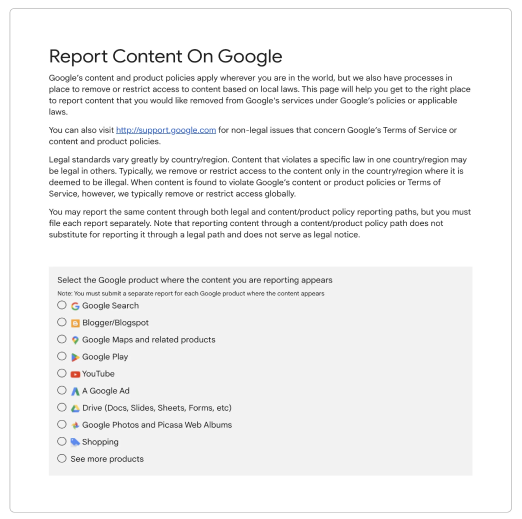
#2. Submit a DMCA Takedown Notice on Google
When a regional news outlet or global blog republishes your proprietary content, immediate action is essential to protect your brand in today’s competitive market. Start by capturing the infringing URLs and taking dated screenshots or archived copies that clearly establish your ownership. Next, access Google’s copyright-removal portal (support.google.com/legal/troubleshooter/1114905) and select the relevant product—Search, YouTube, Images, and more. Complete the form with your contact details, a precise description of your original work, the infringing links, and a sworn statement confirming your rights. Google will review the claim and may request additional information; timely responses keep the process on track. Once validated, the offending URLs are delisted, cutting off traffic to the stolen content and reinforcing your online reputation.

#3. Hire an SEO Expert
When you partner with reputation-focused SEO strategist Ross Kernez, you secure an ally who knows how to tilt Google’s scales toward your success. Ross deploys a multi-layered program—language-specific news placements, freshly built microsites, high-impact press releases, and synchronized social-media campaigns—engineered to lift favorable coverage until it overshadows any hostile links. Every action is bespoke: Ross audits the keywords, publications, and social channels that influence decision-makers in your marketplace, then powers a content engine that keeps your best headlines front and center while quietly relegating negative results beyond page one.
Outsourcing this mission safeguards your time, reputation, and revenue. Online reputation management demands 24/7 vigilance, technical precision, and culturally sensitive storytelling. By entrusting the task to Ross, you stay focused on growth rather than chasing algorithms. Behind the scenes he leverages enterprise-grade analytics, competitive-intelligence suites, and real-time monitoring dashboards—spotting threats early, fine-tuning tactics on the fly, and delivering clear, data-rich progress reports.
Because Ross operates at the intersection of SEO, PR, and data science—and tracks Google’s frequent core updates—his strategies evolve as quickly as the algorithms. Whether you face an unflattering article, a viral rumor on social media, or a sudden SERP shake-up, he adapts, neutralizes, and re-anchors your digital narrative. The result: when someone searches your name, they discover the story you’ve worked hard to craft—exactly as you intend.

#4. Reaching Out To Journalists
Reaching out to a journalist—or any outlet—to address unfavorable coverage calls for tact, cultural awareness, and a clear, evidence-backed request. Start by identifying the reporter and publication, then review their published correction or update policies so your appeal respects their editorial standards and local media guidelines. In your personalized email (never a form letter), acknowledge the journalist’s commitment to accurate reporting and explain—supported by concise, verifiable proof—why the article is outdated, misleading, or factually incorrect. Supply documentation or recent developments that present a fuller, more current picture; if the facts remain sound but the piece is stale, politely propose an update highlighting your latest milestones. Offering an exclusive angle, interview, or data set turns your request into a win-win, giving the reporter fresh content while reducing the impact of the original story.
Maintain a professional, empathetic tone at every step; journalists are not obliged to revise or retract, and courteous collaboration is far more effective than confrontation. If direct dialogue stalls, fold the effort into a broader Crisis Communications & Reputation Management strategy—whether that means consulting legal counsel under applicable copyright and defamation statutes or engaging a dedicated ORM specialist who can pursue additional mitigation paths across diverse media landscapes and languages.
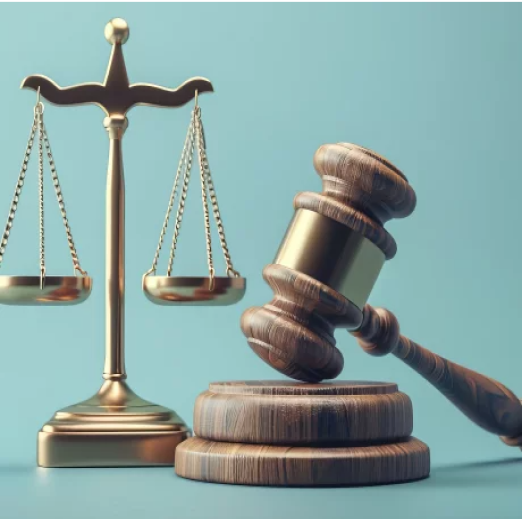
#5. Explore Legal Avenues
Taking a publisher to court under strict defamation and cyber-crime statutes may sound like a clean solution, yet lawsuits seldom deliver the blank slate clients envision. Proceedings are costly, protracted, and emotionally exhausting—stretching over months or even years of filings, expert reports, and legal fees—with no guarantee the offending content will disappear. Worse, the moment you file, the disputed story can roar back into the spotlight as media outlets cover the case, triggering the very Streisand-effect surge you hoped to avoid. The legal threshold is steep: you must prove the statements are false, damaging, and published in bad faith—an especially high bar when opinion or nuanced language is involved. Even a courtroom win often leaves the article online, now indexed alongside fresh headlines about the lawsuit itself, and it may sour future relations with journalists who see you as litigious.
A smarter route for brands and public figures is proactive Crisis Communications & Reputation Management. By correcting inaccuracies directly with editors, amplifying factual, positive narratives in multiple languages, and dominating search results with fresh, authority-building content, you can shift public perception without igniting a legal spectacle. This forward-looking strategy safeguards your image today while preserving the media relationships and goodwill your future growth depends on.

#6. Requesting an Update To An Article To Remove Negative Results
When seeking an update from a journalist—whether local or international—lead with tact, transparency, and hard evidence, not confrontation. Begin your message by acknowledging the reporter’s professionalism and commitment to accurate journalism, then supply clear, verifiable proof that the piece is outdated, unbalanced, or factually incorrect. Strengthen your case with recent milestones, corrected data, or fresh context the original article overlooked—ideally in the languages most relevant to their audience.
Frame your request as a shared pursuit of accuracy, not an attempt at suppression; this collaborative tone cultivates goodwill and makes it easy for the writer to refine the story. The payoff is a more balanced article that safeguards your reputation while enhancing the publication’s credibility—quietly pushing negative search results out of the spotlight and reinforcing your standing in today’s competitive media landscape.

Who We Work With
We provide search suppression services for both individuals and corporations.
Below are some of the types of clients we've been able to work with over the years:
Individuals
1. Celebrities
2. Musicians
3. Politicians
4. Authors
5. Non-public individuals
Business
1. Fortunate 500 companies
2. CEOs & executives
3. Business crises
Advanced Tracking Technology
Our tailored suppression process is supported by advanced tracking technology, specifically designed for our search suppression services. This custom-built solution enables seamless monitoring of your campaign's performance and progress.
Key features of our technology include:
Analyzing sentiment associated with search results
Providing a comprehensive sentiment score
Tracking a wide range of brand-related keywords
Monitoring search results across various locations
With our proven suppression strategies, we effectively pushed negative content off the first page of Google search results.
We can help you push down negative results and secure positive news coverage in 146 countries and 51 languages
All countries
Europe
North America
Central America
South America
Asia-Pacific
Middle East
Africa
Central Asia
Kazakhstan
Mexico
France
U.S.
Serbia
Bangladesh
Bosnia and Herzegovina
Venezuela
Pakistan
U.A.E.
Switzerland
Hungary
Turkey
Romania
India
Spain
Kyrgyzstan
Kenya
Georgia
Vietnam
Slovakia
Peru
Chile
Belgium
Indonesia
Argentina
Germany
Poland
China
Estonia
Azerbaijan
Norway
Lithuania
Nigeria
Austria
Denmark
Portugal
Canada
Italy
U.K.
Malaysia
Finland
Uzbekistan
South Africa
Croatia
Bulgaria
Czech Republic
Australia
Netherlands
Brazil
Ukraine
Moldova
Singapore
Egypt
Philippines
Latvia
Japan
Sweden
Colombia
France
Serbia
Bosnia and Herzegovina
Switzerland
Hungary
Romania
Spain
Georgia
Slovakia
Belgium
Germany
Poland
Estonia
Norway
Lithuania
Austria
Denmark
Portugal
Italy
U.K.
Finland
Croatia
Bulgaria
Czech Republic
Netherlands
Ukraine
Moldova
Latvia
Sweden
Mexico
U.S.
Canada
Venezuela
Peru
Chile
Argentina
Brazil
Colombia
Bangladesh
India
Vietnam
Indonesia
China
Malaysia
Australia
Singapore
Philippines
Japan
U.A.E.
Turkey
Azerbaijan
Egypt
Kenya
Nigeria
South Africa
Pakistan
Kyrgyzstan
Uzbekistan
FAQs
How to Suppress Unwanted News?
What does it mean to “Un-Google” myself?
“Un-Googling” is the strategic process of reclaiming control over what appears when someone types your name into a search engine. Rather than relying on chance—or on outdated or hostile links to write your story—we systematically remove or suppress damaging results and replace them with accurate, authority-building content that you approve. The goal is not to erase your presence but to curate it so that every visible link genuinely reflects your accomplishments and character. In practice, that means hostile headlines, old forum rants, or data-broker leaks get pushed out of sight, while new, positive coverage rises into the slots that matter most. By managing that first page, we help you restore privacy, credibility, and peace of mind.
How do you identify every mention of me online?
We begin with a forensic-level audit that traces your full legal name, common nicknames, brand marks, and even misspellings across search engines, social networks, news archives, data-broker databases, and the deep web. Specialized software flags each appearance, assigns a risk score based on visibility and sentiment, and maps the domains hosting the content. Our team then manually reviews the findings to sieve out false positives and prioritize true threats. The end result is a comprehensive, plain-language report showing exactly what strangers see—and what they could discover with just a few clicks beyond page one. This audit becomes the blueprint for removal, suppression, and content-creation strategies.
What types of content can you remove or suppress?
We target everything from defamatory news articles and outdated legal records to revenge-posting sites, data-broker listings, mugshot galleries, and embarrassing social media clips. Some items can be taken down entirely through legal demands or platform policy claims, while others require strategic suppression—essentially outranking them with stronger, fresher, more relevant assets. We also address cached copies, image thumbnails, and text snippets so the content doesn’t linger in Google’s memory. In borderline cases, we evaluate fair-use arguments and privacy statutes to see whether a formal takedown stands a chance; if not, we pivot to aggressive demotion. Either way, our objective is the same: make the harmful link effectively invisible to everyday searchers.
Can you delete information from Google completely?
Permanent deletion is possible only when a piece of content breaks the law, violates the host platform’s terms, or qualifies under statutes like GDPR’s “Right to Erasure.” When those conditions are met, we pursue direct takedown or de-indexing so the link no longer appears. If total deletion isn’t legally feasible, we shift to suppression—burying the item beneath pages of updated, search-optimized assets so few people ever find it. In addition, we submit outdated-content removal requests to clear lingering caches and snippets. Even in stubborn cases, the visibility drop can be so steep that the harmful result all but disappears from practical view.
How long does the Un-Google process take?
Most engagements run eight to twelve weeks from audit to measurable page-one improvement, though severe or global crises can extend the timeline. Legal takedowns and data-broker removals often show impact within the first month, while content-suppression gains compound steadily as new assets index and age. We provide a projected milestone calendar up front so you know when to expect specific wins. Even after core objectives are met, search rankings remain dynamic, which is why we recommend optional monitoring to lock in gains. The sooner you start, the sooner you regain control—delays allow negative items to entrench themselves and attract backlinks.
Are your methods compliant with laws like GDPR and CCPA?
Yes—our entire framework is designed around international privacy statutes and individual platform policies. We never engage in black-hat SEO, fake reviews, or hacked deletions that could put you at legal risk. For European Union residents, we leverage GDPR provisions such as Articles 17 and 21 to enforce erasure and objection rights. For California consumers, we invoke CCPA/CPRA rules to remove personal data from data brokers and opt you out of future sales. By staying firmly within legal guardrails, we deliver durable results that survive algorithm updates and scrutiny.
Will the negative content come back after you push it down?
Search results are fluid, and a dormant negative link can resurface if it picks up new clicks or updates. That’s why our strategy doesn’t end with a one-time push; it includes a pipeline of fresh, positive coverage and technical defenses to keep your assets dominant. We continuously monitor for relics re-entering page one and respond with rapid content injections or renewed legal action. The longer your positive footprint grows, the harder it is for old noise to break through. Think of it as building a reputation moat that protects your brand long after the initial crisis fades.
What is the difference between removal and suppression?
Removal eliminates the offending link or its search listing entirely, usually via legal takedown, policy violation claim, or data-broker opt-out. Suppression, on the other hand, leaves the link online but relegates it so far down the search results that almost no one sees it. Removal is the gold standard, but not always possible; suppression is the fail-safe that guarantees practical invisibility. Both methods can operate together—for example, we might remove the page from Google images while suppressing its text result. Our audit decides which route—or combination—delivers the quickest, most durable fix.
Do you create positive content about me?
Absolutely. We commission thought-leadership articles, arrange podcast interviews, place guest columns, and craft social posts that spotlight your expertise and values. Each asset is optimized for specific keywords tied to your name so it outranks outdated or negative links. We also refresh your existing bios, LinkedIn profile, and personal site to ensure technical SEO is airtight. The focus is authenticity: every piece is fact-checked with you and positioned to add genuine value to readers. By feeding Google a steady diet of credible, useful content, we make the algorithm your ally.
How do you ensure the new content ranks on page one?
First, we publish on domains with proven authority and topical relevance, giving our pieces an innate boost. Next, we align on-page SEO—metadata, internal links, schema markup—with the exact queries people use to find you. We coordinate social amplification, ensuring the content earns engagement signals that Google treats as validation. Finally, we track early-stage rankings and refine headlines, images, or internal links to secure upward momentum. Over time, these signals compound, lifting your curated narrative into the coveted first-page slots.
Is it ethical to alter search results?
Curating your own reputation is both ethical and essential in a world where algorithms make snap judgments. We never manufacture false achievements or silence legitimate criticism; our goal is accuracy and balance. If you’ve addressed past mistakes or if a rumor lacks context, it is entirely fair to highlight your growth and correct the record. Transparency with stakeholders remains vital—our work simply ensures they see the complete picture, not a distorted snippet. In short, we’re leveling the playing field, not rewriting history.
Will this service work for images and videos too?
Yes, visual media often drives first impressions, so we treat images and videos with the same rigor. We target unwanted photos through DMCA requests, privacy claims, or platform-specific reporting tools. For YouTube or TikTok clips, we combine copyright arguments with strategic opposition content so the algorithm surfaces your preferred narrative. We also optimize your professional headshots, presentations, and event footage, making them dominate Google’s image carousel or video tab. By controlling all media types, we leave no gap for sensational visuals to sneak back onto page one.
Can you protect my privacy as well as my reputation?
Absolutely—privacy is the foundation of reputation. We remove personal addresses, family details, and sensitive identifiers from data-broker sites, scraping archives, and people-finder databases. Our team sets up Google Alerts and dark-web monitoring to detect new leaks before they spread. We also guide you on two-factor authentication, account hygiene, and social-media settings that minimize future exposure. The result is a dual shield: fewer attack vectors for bad actors and a cleaner public profile for professional audiences. When privacy is tight, reputation management becomes exponentially easier.
What industries or professions benefit most from Un-Googling?
We routinely serve C-suite executives, medical professionals, lawyers, entrepreneurs, influencers, and high-net-worth individuals—anyone whose livelihood depends on trust. Venture-backed founders often need a spotless slate before fundraising, while licensed specialists must guard against patient or client hesitation. Even college applicants and job seekers use Un-Googling as a future-proofing measure, eliminating youthful missteps before recruiters look. Politicians and public figures rely on us to correct misinformation that could sway voters or donors. In short, if Google affects your opportunities, an Un-Google strategy is insurance you can’t ignore.
How much does the service cost?
Pricing scales with complexity, urgency, and geographic scope. A modest reputation tune-up might start at a low five-figure fee, while crisis-level suppression across multiple languages and jurisdictions commands a higher investment. We outline all expected costs after the audit, breaking down hours, legal filings, content production, and monitoring tools. There are no hidden charges; every spend ties directly to a deliverable or outcome. Because the financial stakes of lost deals, jobs, or partnerships often dwarf our fees, clients view the service as a high-return asset.
Do you guarantee results?
We guarantee the effort, expertise, and transparency of our process, and we set clear performance milestones. While no one can force Google to obey a specific ranking, our historical success rate exceeds 95% for pushing targeted items off page one within the agreed timeline. If a link proves exceptionally stubborn, we communicate early and pivot strategies—sometimes pursuing legal avenues or bolstering authority signals. We also offer extended monitoring so gains remain durable. Success is measured not by promises but by the search results you see when we’re done.
How do you handle sensitive personal data during the project?
All data flows through encrypted channels, and access is limited to senior team members on a strict need-to-know basis. We sign NDAs and adhere to GDPR-grade data-processing standards even for clients outside the EU. Sensitive documents are stored on secure, segregated servers with 30-day deletion policies unless long-term retention is requested. Regular audits ensure compliance with ISO 27001 best practices. Your private information never appears in our marketing materials or case studies without explicit consent.
Can you help with social media platforms?
Yes—social profiles are often the first or second organic result, so they’re critical real estate. We audit your handles for outdated bios, controversial posts, weak privacy settings, and inconsistent branding. Then we craft a content calendar that highlights milestones, thought leadership, and community engagement, all optimized for keyword discoverability. If impersonation accounts or hostile threads exist, we file reports and DMCA claims to suspend or remove them. The combined effect turns social channels into verified authority hubs that overshadow negative chatter.
What if the negative content is true?
If the information is accurate but outdated or lacks context, we focus on providing the full story by highlighting your corrective actions, subsequent achievements, or relevant explanations. For example, a resolved lawsuit might be accompanied by a case-dismissed update or charitable initiative that followed. We never falsify data; instead, we supplement the narrative so viewers see your growth arc. Where possible, we pursue official corrections or add “right to reply” statements to existing articles. Authentic redemption often resonates better with audiences than silence.
Will using your service violate Google’s policies?
Our approach aligns with Google’s Webmaster Guidelines and relies on legitimate SEO, legal rights, and platform procedures. We don’t use link farms, hidden redirects, or spam networks—tactics that could trigger penalties. When we request de-indexing, we use Google’s own forms for privacy, defamation, or outdated content. Suppression efforts rely on high-quality editorial placements, which Google encourages. This white-hat stance means your search presence remains stable through future algorithm updates.
How do you measure success?
We benchmark all page-one results at the start, then track shifts weekly via enterprise-grade rank-tracking tools. Success indicators include removal confirmations, demotion of negative links beyond page one, and ascension of positive assets into top-three positions. We also monitor sentiment scores, backlink quality, and social engagement to verify holistic improvement. At project end, we deliver a before-and-after report complete with annotated screenshots and ranking tables. That transparency lets you verify every claim.
Can you work with my current PR or legal team?
Absolutely—collaboration often accelerates results. Your PR team can supply messaging frameworks and brand guidelines, while our specialists infuse SEO precision and crisis tactics. Legal counsel adds leverage for defamation claims and ensures every takedown rests on solid ground. We establish a shared communication channel so information flows seamlessly without duplication of effort. The combined expertise creates a united front Google can’t ignore.
What happens after the initial engagement ends?
You receive a comprehensive maintenance roadmap detailing how to sustain your improved landscape. This includes best practices for content cadence, social engagement, and rapid-response playbooks for new threats. Many clients opt for quarterly or monthly monitoring retainers, where we scan for emerging risks and deploy fixes proactively. Others prefer an annual health check to confirm the first page still reflects their goals. You remain in control—our support simply adapts to your evolving needs.
Do you offer ongoing monitoring?
Yes—real-time monitoring is available through a secure dashboard that aggregates search rankings, social chatter, and brand-mention alerts. When a new result meets your predefined risk criteria, the system notifies our team and yours instantly. We then assess whether removal, suppression, or a content counterpunch is warranted. This vigilance prevents small sparks from igniting into full-blown crises. Clients who maintain monitoring typically enjoy a cleaner digital footprint long-term.
Is this service available worldwide?
We operate across jurisdictions, leveraging local counsel and translators when cultural nuance or legal specificity is required. GDPR, Canada’s PIPEDA, Australia’s Privacy Act, and other statutes form part of our regular playbook. For countries without strong privacy laws, we focus on platform terms of service and SEO-based suppression. Multi-lingual content creation ensures your narrative resonates in each target market. Wherever Google and major social platforms operate, we can support your Un-Google goals.
What legal tools do you use for takedowns?
We deploy cease-and-desist letters, DMCA notices, GDPR removal requests, defamation claims, and privacy tort arguments depending on jurisdiction. For US clients, Section 230 carve-outs and state-level anti-doxxing statutes can provide leverage. In the EU, “Right to be Forgotten” rulings give us powerful precedent. We draft each filing in consultation with counsel to maximize compliance and success odds. Legal action is never the first step, but it remains a decisive option when diplomacy fails.
How private is our engagement?
Client confidentiality is absolute; your name never appears in our marketing unless you approve a testimonial. We use anonymized project codes in internal meetings and secure file-sharing portals resistant to phishing. All subcontractors sign binding NDAs, and we purge data after contract completion unless retention is necessary for legal defense. If you require extra secrecy—such as alias billing or offshore data storage—we accommodate. Your privacy protection starts the moment you reach out.
Can individuals do any of this on their own?
You can file basic data-broker opt-outs and set up Google Alerts yourself, but success often stalls at the first stubborn news site or viral Reddit thread. Professional networks, legal leverage, and high-authority placements are difficult to access without industry relationships. DIY efforts also consume time and may inadvertently trigger the Streisand effect by drawing fresh attention. Our team combines expertise, speed, and discretion, saving you months of trial and error. Most clients find the ROI far exceeds the DIY alternative.
How do you choose which publications to place positive stories in?
We evaluate each outlet’s domain authority, topical relevance, audience demographics, and historical performance for similar clients. High-DA sites accelerate ranking, while niche industry journals lend credibility with decision-makers. We also factor in syndication potential—stories picked up by wire services multiply your reach. Ethics matter too; we avoid pay-to-play farms lacking editorial standards. By balancing authority and authenticity, we secure placements that impress both Google’s algorithm and human readers.
What makes your approach different from typical SEO agencies?
Traditional SEO focuses on boosting site traffic and keywords; we concentrate on risk mitigation, legal takedowns, and narrative control across every platform where your name appears. Our team blends crisis communicators, defamation attorneys, investigative journalists, and technical SEOs under one roof. That interdisciplinary model lets us pivot from press strategy to privacy law without missing a beat. Unlike agencies chasing vanity metrics, we define success by what disappears from page one—and by the authority of what replaces it. In essence, we’re not just ranking pages; we’re securing your future.
